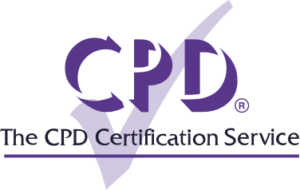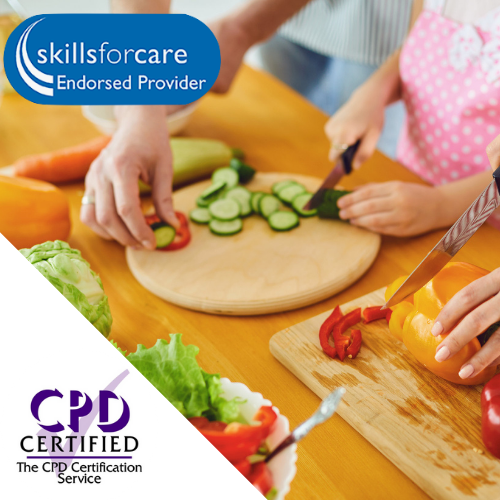In this Environmental Health Officers (EHOs) CPD Guide
Why do Environmental Health Officers (EHOs) need CPD?

An environmental health officer (EHO) is a professional who works to protect public health and the environment. Also known as an Environmental Health Practitioner, they are responsible for enforcing laws and regulations related to food safety, air and water quality, noise pollution, and other environmental health issues. Poor health often results from a poor environment, so EHOs make a huge difference to people’s health and wellbeing.
There are different specialisms of an EHO which are:
Public Health.
Environmental Protection.
Food Safety and Integrity.
Health and Safety.
Housing and Community.
What our customers have to say
Dan King
Mobilisation, Training & Performance Manager

Sophie Aiken
HR Manager

Harriet Lee
Retail Recruitment Manager

What CPD courses do Environmental Health Officers (EHOs) need?
There are many courses that will benefit an EHO because of their large responsibility for public safety.
Some popular courses suited to an EHO are:
Allergen Awareness – this course is designed to give the necessary knowledge of allergies and intolerances for food handlers. This knowledge is used to reduce contamination and keep customers safe from any allergens they are allergic to.
Spill Management – spills are a hazard that EHOs will look out for in the workplace. Workplaces that transport, store and use any hazardous substances have the risk of spills or leaks. This course will provide you with some examples of how to prevent them, information on legal compliance, safe working practices, and what should be done if there is an incident at the workplace.
Pest Control – this course will explore what a pest is, the types of pests, how to spot and identify signs of pest infestation and the different types of pest control.
Noise Awareness – noise pollution is a common health and safety hazard. This course covers everything that you need to know about keeping safe when working in conditions where you are exposed to noise. The units cover what noise is, how to measure sound, safety equipment as well as legislation relating to noise in the workplace.
Legionella and Legionnaire’s Disease Awareness – this course will highlight everything you need to know about Legionella. You will learn how to control and prevent the risk of Legionella entering the workplace and will gain a greater knowledge of the legislation that is applicable.
Lead Awareness – you will look at the importance of welfare facilities and what employers should provide to employees at risk of lead exposure. You will look at other control measures and why it is important to maintain, test and examine them. You will look at some of the actions required if an individual’s lead levels are too high. You will look at lead poisoning, the treatments available and further actions required.
Improving your Food Hygiene Rating – as an EHO you will inspect businesses to ensure that they are complying with food law and ensure that they are producing food that is safe for human consumption. In this course you will learn what to look for during a food hygiene inspection.
Hazard Analysis and Critical Control Point (HACCP) – EHOs can take different enforcement action against food businesses that are not complying with food safety laws, such as enforcement notices and penalties. In this course you will consider that food safety hazards can be controlled by good hygiene practices and learn the importance of having a food safety management system based on the principles of HACCP.
Food Safety and Hygiene for Catering Level 2 – this course teaches best practice when working in any catering role and meets UK regulations for food handlers. We also provide food safety and handling courses for manufacturing and retail settings.
Food Labelling Regulations Training – any business selling pre-packed food and drink products directly to the public or caterers must provide the correct food information and properly label their products as per the requirements of the food labelling regulations. Not complying with labelling requirements can mean falling foul of the law.
Fire Safety Awareness – fire safety is an area that will fall under a health and safety inspection of any work setting. This course gives a great understanding of how to reduce the risk posed by fire in the workplace and what procedures workplaces should have in place.
COSHH Awareness – this course is designed for people who work with hazardous substances and will introduce you to the COSHH legislation. Identifying substances that are hazardous to health and the correct risk assessment and control measures will be covered to ensure students are knowledgeable of how to deal with substances under the COSHH legislation.
Download our CPD trackerA guide to CPD for Environmental Health Officers (EHOs)
An EHO may perform tasks such as inspecting food premises, carrying out health and safety inspections, investigating noise complaints, monitoring air quality, and enforcing laws related to environmental health. Inspections and investigations result in reporting on the environmental health standard of that premises, which can result in a positive rating, or lead to legal proceedings for poor environmental health outcomes where progress hasn’t been made.
To become an EHO, you need a degree in Environmental Health accredited by the Chartered Institute of Environmental Health (who are the UK regulator of EHOs). After completing your degree, you will need to gain practical experience by working in the field before applying for registration with the Environmental Health Registration Board. Strong communication, problem-solving and analytical skills are also important for success in this role.
EHOs are required to undertake Continuing Professional Development (CPD) to maintain and update their knowledge and skills. This typically involves a minimum number of hours of CPD training each year.
Some examples of CPD activities include:
- Attending conferences.
- Completing online research.
- Participating in workshops.
- Working with a mentor.
- Completing CPD courses.
CPD certificates
CPD certificates signify that you have successfully completed a CPD course. Each of the CPD Online College courses result in you obtaining a CPD certificate upon successful completion of the course. You should keep your certificate safe for when you need to show this to your employer or regulator, and to help you remember when you need to renew it (which shall be explained later). All CPD certificates that we provide our students are available to download immediately after completing your course.
Logging CPD hours
The time spent on your CPD course should be logged to form a part of your logged CPD hours. This can then be shown to your regulator and employer as evidence of the number of hours that you have spent on CPD training. We advise our students to keep a running log of CPD hours throughout the year so that it is easy to calculate the total amount of time spent on CPD training.
Keeping evidence
Your log of CPD hours can form a part of your evidence of CPD training. Keeping evidence is a great way to showcase what CPD training you have taken part in. We advise our students to create a CPD portfolio that showcases the different types of CPD training they have undertaken. We find that this is the most streamlined way of maintaining your CPD records.
Renewing CPD certificates
Your CPD certificate has to be renewed at least every two years to keep up to date with any updates in your industry. You can do this easily with CPD Online College by completing a refresher of your CPD course (as we update these regularly). As an EHO, updates to health, safety and food regulations can be common so it is important to keep track of when guidance changes. By renewing your CPD certificate, you can ensure that you are working with the most up-to-date knowledge whilst you are out in the field.
























